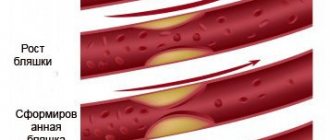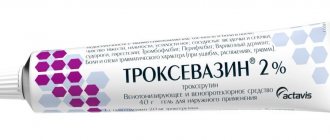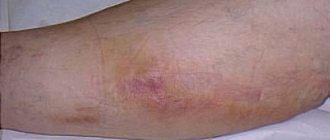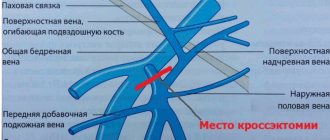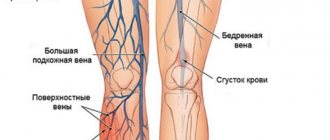Hemorrhoids are a common pathology characterized by inflammation, dilation, tortuosity and thrombosis of the hemorrhoidal veins. In less advanced stages, it is treated conservatively with medications in the form of tablets, ointments, and suppositories.
The most common drugs for internal use are Detralex and Phlebodia 600. They are effective, well tolerated by most patients, but have a high price. As an alternative, Venarus is often prescribed for hemorrhoids. This is a cheaper Russian-made drug with a similar effect. It refers to both angioprotectors and venotonics.
Available in biconvex, oblong tablets in a pink-orange coating. The tablets are packaged in a cardboard box, 10 or 15 pieces per blister.
Composition and action
Venarus for hemorrhoids is no less effective than Detralex, since it contains the same active ingredients - diosmin (0.45 g) and hesperidin (0.05 g), which belong to the group of bioflavonoids. In addition to active substances, they contain auxiliary substances: magnesium stearate, talc, cellulose, gelatin and others.
Diosmin has a tonic effect on the walls of blood vessels, making them stronger and more elastic. It strengthens the ligamentous apparatus that holds the veins in the rectum. In addition, it normalizes blood flow in the capillaries, promotes the formation of a new vascular network, which means it improves blood flow, prevents congestion, relieves inflammation, eliminates itching and burning in the anus.
Hesperidin complements the actions of diosmin. Along with strengthening the vascular wall and improving blood circulation, lymph outflow increases, as a result of which swelling goes away.
Together, these components have the following effects:
- They make vascular walls more elastic, and therefore less extensible.
- Reduces permeability and fragility of capillaries.
- They promote the outflow of blood from the veins, therefore preventing its stagnation and thrombus formation.
- Improves lymph outflow from tissues and blood circulation in capillaries.
Thus, Venarus for hemorrhoids strengthens the walls of blood vessels, while acting on both capillaries and veins.
As a result of taking the drug, patients experience significant improvements. Symptoms such as pain and swelling disappear. The node itself decreases in size, becomes softer and less tense, and moves away from the area of pinching by the sphincter muscles in case of strangulated hemorrhoids.
To improve absorption, diosmin is micronized, that is, the particles are crushed to smaller sizes.
The drug is absorbed in the small intestine and excreted from the body by the kidneys.
External hemorrhoids: treatment, medications and indications for use
External hemorrhoids are one of the types of varicose veins with pathological disorders of the venous vessels of the anus and lower rectum. It is localized around the anus and always causes frequent pain during bowel movements, which can only be relieved with painkillers, discomfort in the anus, burning and itching. External nodes are easily palpable. The number of “bumps”, their size and location depends on the individual characteristics of the organism.
The main danger of external hemorrhoids is the possibility of thrombosis. Inflamed veins not only cause maximum discomfort, but can also be easily injured, resulting in bleeding. Due to the high pressure in the venous vessels, it is quite difficult to stop it. Medicine to relieve local symptoms is selected based on the severity of the disease.
Causes of external hemorrhoids
External hemorrhoids have their own symptoms that are different from the internal form of the disease. However, only an experienced specialist, after a thorough diagnosis, will be able to make the correct diagnosis and prescribe the necessary medications. The difficulty is that with internal localization, the “bumps” fall out, and with external localization, they directly form in the subcutaneous tissues around the anus.
External varicose veins of the anus are the result of prolonged stagnation of blood, which leads to dilation and modification of the veins. Provoking factors can be a hereditary predisposition, which causes tissue degeneration of the venous vessels, as well as a whole list of reasons depending on the patient:
- Inactive lifestyle, minimal physical activity;
- Long-term work in a “sitting” position;
- Obesity;
- Abuse of fatty and spicy foods, alcohol;
- Failure to maintain water balance;
- Hormonal disbalance;
- Pregnancy and childbirth.
In practice, there is no single objective reason for the development of external hemorrhoids. Therefore, treatment methods and the choice of medication will depend on the root cause and additional factors in order to eliminate not only the symptoms, but also influence the overall condition of the blood vessels. Particular attention should be paid to the treatment of external hemorrhoids in pregnant women. The reason for its appearance in this situation is excessive compression of the greater vena cava as a result of the growth of the fetus in the uterus. Not all prescribed medications are suitable for the expectant mother, so the choice of drugs must be approached very carefully.
Conservative methods of treating external hemorrhoids
External hemorrhoidal syndrome can be treated with surgery, minimally invasive operations and conservative methods, which involve taking medications, using topical medications and physiotherapeutic procedures.
Conservative medicine is one of the main components of complex therapy for hemorrhoids. Tablets and ointments are most effective in the first stages of the disease or in the prevention of varicose veins. At later stages of development, drugs are used as an additional means of therapy to relieve severe symptoms and pain. As part of conservative treatment, the following procedures may be prescribed:
- Local medications - rectal suppositories, ointments, gels with anti-inflammatory, decongestant and analgesic effects;
- Medicinal baths and enemas with a calming and antibacterial effect;
- Regular anal hygiene, which includes using wet wipes, showering after each bowel movement, wearing comfortable cotton underwear;
- Venotonic drugs - this group of drugs includes popular phlebotonics, angioprotectors and blood thinners.
Indications
Venarus, like other venotonics, is indicated for chronic venous insufficiency, varicose veins of the legs and hemorrhoids. It is prescribed as a prophylactic agent, as well as during the rehabilitation period after surgery to remove hemorrhoids.
The drug is prescribed both for acute hemorrhoids and as a prevention of its exacerbations
Drug therapy for varicose veins of the lower extremities
Today, a phlebologist has a wide range of different drugs in his arsenal that are used for varicose veins. The main indication for drug therapy is the presence of chronic venous insufficiency or prevention in risk groups.
Phleboprotectors are the main group of drugs that affect venous tone and protect its wall and valves from destruction. The main phleboprotector recommended by world associations of phlebologists is micronized diosmin (Detralex), which improves microcirculation, reduces vascular permeability and protects the venous wall and vein valves from destruction. In addition to the main drug in the treatment of varicose veins, phlebologists prescribe auxiliary drugs that help fight the symptoms of venous insufficiency in the legs (anti-inflammatory drugs, disaggregants, anticoagulants, antihistamines, glucocorticoids, including in the form of ointments and gels). Drug therapy is prescribed in courses. A course of medications is also recommended before and after surgical treatment (EVLT, sclerotherapy, miniphlebectomy) to prevent relapse.
Modern classification of drugs for the treatment of varicose veins:
1. Venotonic drugs:
- Detralex;
- Rutoside (Venoruton, Rutin);
- Tribenoside (Glivenol);
- Troxerutin (Troxevasin);
- Cyclo-tri-forte;
- Endothelon;
- Escin (Aescin, Venen, Venitan, Venoplant, Concentrin, Reparil, Aescusan);
- Ginkor-forte.
2. Drugs that improve blood flow in blood vessels:
- Pentoxifylline (Agapurin, Arbiflex, Vazonit, Darte-lin, Mellinorm, Pentilin, Pentohexal, Radomin, Ra-lofect, Trenpental, Trental, Flexital, Quinotal)
3. Anticoagulants:
- Heparin-containing ointments, gels (Troxevasin, Lyoton 1000 mg, Detragel)
Venotonic drugs
Detralex
Detralex is a venoprotector and venotonic. Effective in the treatment of all types of chronic venous insufficiency. Reduces the severity of symptoms of CVI of the lower extremities (feeling of heaviness, pain in the legs, night cramps, impaired trophic tissue of the legs). Detralex is also used to relieve acute hemorrhoidal attacks (acute attacks of hemorrhoids).
- improves vein tone;
- improves lymphatic drainage;
- normalizes microcirculation;
- fast-acting and lasting effect.
"Detralex" affects the venous vascular system: it reduces the distensibility of veins, increases their tone and reduces venous stagnation. At the microcirculation level, Detralex reduces capillary permeability and increases their resistance. Detralex improves lymphatic drainage.
Rutoside
(Venoruton, Rutin)
"Rutoside" belongs to the group of bioflavonoids (flavonols). Contained in the leaves of mint (Ruta graveolens L.) and other plants.
Has P-vitamin activity. Normalizes capillary permeability, strengthens the vascular wall, and has an anti-inflammatory effect. In patients with CVI, it leads to a reduction in swelling and pain, the disappearance of numbness and cramps.
Troxerutin
Troxerutin: Flavonoid (semi-synthetic derivative of rutin) - venotonic, angioprotective, anti-inflammatory, decongestant, antioxidant effect.
Normalizes the permeability of capillary walls, increases their tone. Increases the density of the vascular wall. Reduces inflammation in the vascular wall.
It is also used for CVI. It is recommended to use both in the initial and late stages of the disease. As a result of treatment, the feeling of heaviness in the legs disappears, swelling of the lower extremities decreases, and trophism improves.
Escin
Triterpene glycoside (saponin) from the fruits (seeds) of horse chestnut.
Synonyms: Aescin, Venastat, Venitan, Concentrin, Reparil, Cycloven forte, Aescin, Concentrin, Cycloven forte, Reparil, Venastat, Venitan.
Herbal preparations from horse chestnut (Aesculus hippocastanum L.): infusions and decoctions of bark, leaves, fruits have long been used in folk medicine as astringents, choleretic, hemostatic (for uterine and hemorrhoidal bleeding) agents. A particularly important pharmacologically active substance is escin - it largely determines the effectiveness of drugs obtained from horse chestnut (escusan, esflazide, etc.).
Escin has a pronounced capillary protective activity and has an anti-inflammatory effect.
Be healthy!
Make an appointment with a phlebologist
Surgeon-phlebologist - Andrey Aleksandrovich Nisin
You can make an appointment by calling (391) 218−35−13 or through your personal account
How to be treated
Doctors do not advise self-medication. How many tablets to take and for how long is determined by the attending physician. The instructions for use contain, as a rule, a standard regimen, according to which the course of treatment of acute hemorrhoids with Venarus lasts seven days:
- For the first four days, it is recommended to take six tablets (two doses of three).
- The remaining three days - four tablets (two doses of two pieces).
Venarus must be taken with meals and washed down with plenty of water. It is recommended to take the medicine in the afternoon. Usually the first appointment is for lunch, the second for dinner.
If there is no improvement after a week's course, it is not recommended to continue taking Venarus. You may need to reconsider your treatment regimen or undergo additional examinations.
As a preventive measure, Venarus is taken for two months, one tablet per day.
The doctor may prescribe another course of treatment, it all depends on the specific case. The dosage and duration of treatment may differ from those given in the instructions for the drug.
Contraindications and side effects
Venarus is well tolerated by most patients; it can even be prescribed to pregnant women. There are only two contraindications:
- individual intolerance to active substances;
- lactation period.
In most cases, there are no side effects, but they cannot be ruled out. And although they do not pose a threat to life and health, if they appear, you should stop taking them and be sure to tell your doctor about it. With the current wealth of choice of medications for hemorrhoids, you can easily choose another remedy. And now about the possible side effects:
- Disturbances in the digestive system: feeling of fullness in the stomach, nausea, belching, bloating, diarrhea.
- Autonomic disorders: pressure surges, hot and cold, frequent or, conversely, rare pulse, increased sweating, dizziness, headache, weakness.
- Allergic reactions: rash, skin itching.
- There may be a sore throat and chest pain.
Venarus 500 mg 30 pcs. film-coated tablets. obol.
pharmachologic effect
Venotonic and venoprotective agent.
Composition and release form Venarus 500 mg 30 pcs. film-coated tablets. obol.
1 tablet contains:
- active ingredients: hesperidin - 50 mg, diosmin - 450 mg;
- excipients: microcrystalline cellulose 62.0 mg, sodium carboxymethyl starch (sodium starch glycolate) 27.0 mg, gelatin 31.0 mg, talc 6.0 mg, magnesium stearate 4.0 mg;
- shell: hypromellose (hydroxypropyl methylcellulose 20.7 mg, macrogol 6000 (polyethylene glycol 6000) 3.38 mg, sodium lauryl sulfate 0.1 mg, magnesium stearate 1.24 mg, titanium dioxide 3.94 mg, iron oxide red 0.3 mg, iron oxide yellow 0.34 mg.
Film-coated tablets, 500 mg.
10 or 15 film-coated tablets in a blister pack.
2, 3, 4, 6, 7, 8, 9 strip packaging along with instructions for use are placed in a cardboard pack.
Description of the dosage form
Orange-pink film-coated tablets, biconvex, oblong in shape with rounded ends, scored. On a cross section, the kernel is grayish-yellow to brownish-gray in color.
Directions for use and doses
Inside.
The recommended dose for venous-lymphatic insufficiency is 2 tablets per day (in one or two doses): morning, afternoon and/or evening, during meals.
The duration of treatment can be several months (up to 12 months). In case of recurrence of symptoms, on the recommendation of a doctor, the course of treatment can be repeated.
The recommended dose for acute hemorrhoids is 6 tablets per day: 3 tablets in the morning and 3 tablets in the evening for 4 days, then 4 tablets per day: 2 tablets in the morning and 2 tablets in the evening for the next 3 days.
The recommended dose for chronic hemorrhoids is 2 tablets per day with food.
Pharmacodynamics
It has an angioprotective and venotonic effect. Reduces the distensibility of veins, increases their tone and reduces venous stagnation; reduces permeability and fragility of capillaries and increases their resistance; improves microcirculation and lymphatic drainage. When used systematically, it reduces the severity of clinical manifestations of chronic venous insufficiency of the lower extremities of an organic and functional nature.
Pharmacokinetics
The main excretion of the drug occurs in the feces. On average, about 14% of the administered amount of the drug is excreted in the urine.
The half-life is 11 hours.
The drug undergoes active metabolism, which is confirmed by the presence of phenolic acids in the urine.
Indications for use Venarus 500 mg 30 pcs. film-coated tablets. obol.
Treatment of symptoms of venous-lymphatic insufficiency: pain, cramps of the lower extremities, a feeling of heaviness and fullness in the legs, “fatigue” of the legs. Treatment of manifestations of venous-lymphatic insufficiency: edema of the lower extremities, trophic changes in the skin and subcutaneous tissue, venous trophic ulcers. Symptomatic treatment of acute and chronic hemorrhoids.
Contraindications
Hypersensitivity to the active components or excipients included in the drug.
The drug is not recommended for nursing women.
Effect on the body
| Venotonic and angioprotective |
Application of Venarus 500 mg 30 pcs. film-coated tablets. obol. during pregnancy and breastfeeding
Pregnancy
Experiments on animals did not reveal teratogenic effects. To date, there have been no reports of any side effects when using the drug by pregnant women.
Breastfeeding period
Due to the lack of data regarding the excretion of the drug into breast milk, taking the drug is not recommended for nursing women.
special instructions
In case of exacerbation of hemorrhoids, the prescription of this drug does not replace the specific treatment of other anal disorders.
The duration of treatment should not exceed the periods specified in the section “Method of administration and dosage”. If symptoms do not disappear after the recommended course of therapy, a proctological examination should be performed and the therapy used should be reconsidered.
In the presence of venous circulation disorders, the maximum effect of treatment is ensured by combining therapy with a healthy (balanced) lifestyle: it is advisable to avoid long exposure to the sun, long periods of standing, as well as reducing excess body weight. Walking and, in some cases, wearing special stockings helps improve blood circulation.
Impact on the ability to drive vehicles, operate machinery and engage in other activities that require increased concentration: no effect.
Overdose
No cases of overdose have been described.
In case of drug overdose, seek medical help immediately.
Side effects Venarus 500 mg 30 pcs. film-coated tablets. obol.
The frequency of adverse reactions is presented as follows: very often (≥1/10 cases), often (≥1/100 and
Adverse reactions, the frequency of which cannot be estimated from the available data, are designated “frequency unknown.”
From the central nervous system: rarely - dizziness, headache, general malaise; frequency unknown - convulsions.
From the gastrointestinal tract: often - diarrhea, dyspepsia, nausea, vomiting; infrequently - colitis; frequency unknown - abdominal pain.
From the respiratory system, chest and mediastinal organs: frequency unknown - sore throat, chest pain.
From the skin: rarely - rash, itching, urticaria; frequency unknown - allergic dermatitis, hyperemia, isolated swelling of the face, lips, eyelids, in exceptional cases angioedema.
If any of the adverse reactions indicated in the instructions worsen, or you notice other adverse reactions not listed in the instructions, notify your doctor.
Drug interactions
Not noted.
You should inform your doctor about all medications you are taking.
Venarus during pregnancy
Bearing a fetus is often accompanied by hemorrhoids and varicose veins of the lower extremities, so a woman may absolutely need venotonics, but, as you know, practically no pills should be taken at this time.
According to the instructions, Venorus is not prohibited for pregnant women; whether it can be taken during this period must be decided with your doctor. If necessary, it is prescribed no earlier than the fourth month, that is, starting from the second trimester. Sometimes it can be indicated before childbirth as a prevention of exacerbation of hemorrhoids during delivery.
As for breastfeeding, things are different here: Venorus is prohibited during lactation, since it is not known how much of the drug passes into breast milk and how it can affect it.
Classification of phlebotonic drugs
Modern tablets allow you to treat external hemorrhoids and relieve pronounced symptoms of the disease at any stage. According to clinical trials and patient reviews, the most effective means in the fight against anal varicose veins are:
- Phlebodia is a new generation drug based on plant components of bioflavonoids. The active ingredient diosmin has a venotonic, angioprotective effect on venous vessels, increases lymphatic drainage, strengthens the walls of veins and reduces their permeability. Tablets are indicated for acute and chronic forms of the disease. Contraindications: allergy to the components of the tablet, age under 18 years, 1st trimester of pregnancy and lactation period.
- Detralex is a tablet based on diosmin and hesperidone, which has a complex effect in several directions at once: increasing venous tone, eliminating blood stagnation, normalizing microcirculation of lymph and blood, as well as giving elasticity to blood vessels. Indications: exacerbation of external hemorrhoids, varicose veins of the lower extremities, general prevention of venous insufficiency.
- Venarus – hesperidin and diosmin in tablets. It has the same effects as previous medications. With regular use, it helps to normalize blood flow in the pelvic organs, maintains the elasticity and reliability of the venous wall, and eliminates blood stagnation. Tablets are effective in complex treatment of the problem.
- Vazonit is a medicine based on the active substance pentoxifylline. Helps normalize microcirculation of the venous vessels of the rectum and anus, improves oxygen supply to tissues. The tablets reduce the risk of blood clots in external hemorrhoids, which minimizes the risk of complications. Dispensed with a doctor's prescription.
special instructions
For hemorrhoids, complex therapy is usually indicated. To achieve a good therapeutic result, you need, in addition to taking the pills, to follow other doctor’s recommendations. Typically, when treating hemorrhoids, it is recommended to adhere to the following rules:
- Follow a diet. Avoid spicy, smoked, fried, fatty foods, as well as alcoholic drinks, coffee and mushrooms. Include in your diet porridge cooked in water, lean broths, white poultry meat, fermented milk products, vegetables, and fruits. Completely eliminate alcoholic drinks, it is advisable to give up strong coffee and tea. You need to drink at least 2 liters of water per day. For drinks, give preference to compotes, herbal teas, juices, plain and mineral still water.
- Treatment with Venarus should not be long-term. As a rule, a week's course is enough, after which there should be an improvement, and the pills should be stopped.
- Use external agents in the form of ointments, gels, lotions, as well as rectal suppositories.
- Take vitamins, especially ascorbic acid.
- Avoid strenuous physical activity and prolonged exposure to the sun.
Venarus and Detralex - which is better for hemorrhoids
We can say that these drugs help equally well, since they are very similar in composition. Patients who have taken these medications have different opinions about the effectiveness of each of them: one drug is better for some, and another for others.
The advantage of Venarus is that its cost is lower than that of imported analogues
Unlike Detralex, it is absorbed into the blood more slowly and takes longer to be eliminated from the body.
Detralex is an original drug that has passed all studies in terms of effectiveness and safety for patients. Generic Venarus has not yet been fully researched by manufacturers.
Detralex often causes side effects from the digestive system, while Venarus mainly leads to unpleasant consequences from the nervous system.
Reviews
There are quite a lot of reviews about Venarus for hemorrhoids, some positive, negative, and neutral.
Tamara: Not long ago I had to deal with such an unpleasant disease as hemorrhoids. I took Venarus tablets and I must say that they eliminated the unpleasant symptoms quite quickly. I was also pleased with the price: this medicine is one and a half times cheaper than other similar drugs.
Lada: Hemorrhoids appeared during pregnancy and have been periodically worsening since then. At first I didn’t go to the doctor, I treated myself with suppositories, but in the end I had to go to the hospital. The doctor prescribed Venarus tablets. The pain and lump disappeared after a week, in addition, the heaviness and fatigue of the legs, which had also been tormenting me lately, disappeared.
Galina: I’ve had hemorrhoids for quite a long time, but I didn’t go to the doctor, I treated myself with ointments and suppositories. When I started to worry more often, I decided to go to the hospital. A course of treatment with Venarus was prescribed. I drank strictly following the doctor’s recommendations. Within a week, not a trace of hemorrhoids remained, and now I forgot about it. Several years passed, but it never worsened.
Anna Petrovna: My daughter took Detralex for exacerbation of hemorrhoids, but the pharmacy worker, with the best intentions, offered a cheaper option with exactly the same effect, according to her. These were Venarus tablets. After two days of taking it, she developed dizziness, headaches, weakness, and palpitations. I immediately stopped drinking them, and after a few days the symptoms disappeared. I won’t say anything bad about Venarus, perhaps it’s just not suitable for her, and she now treats hemorrhoids only with Detralex.

